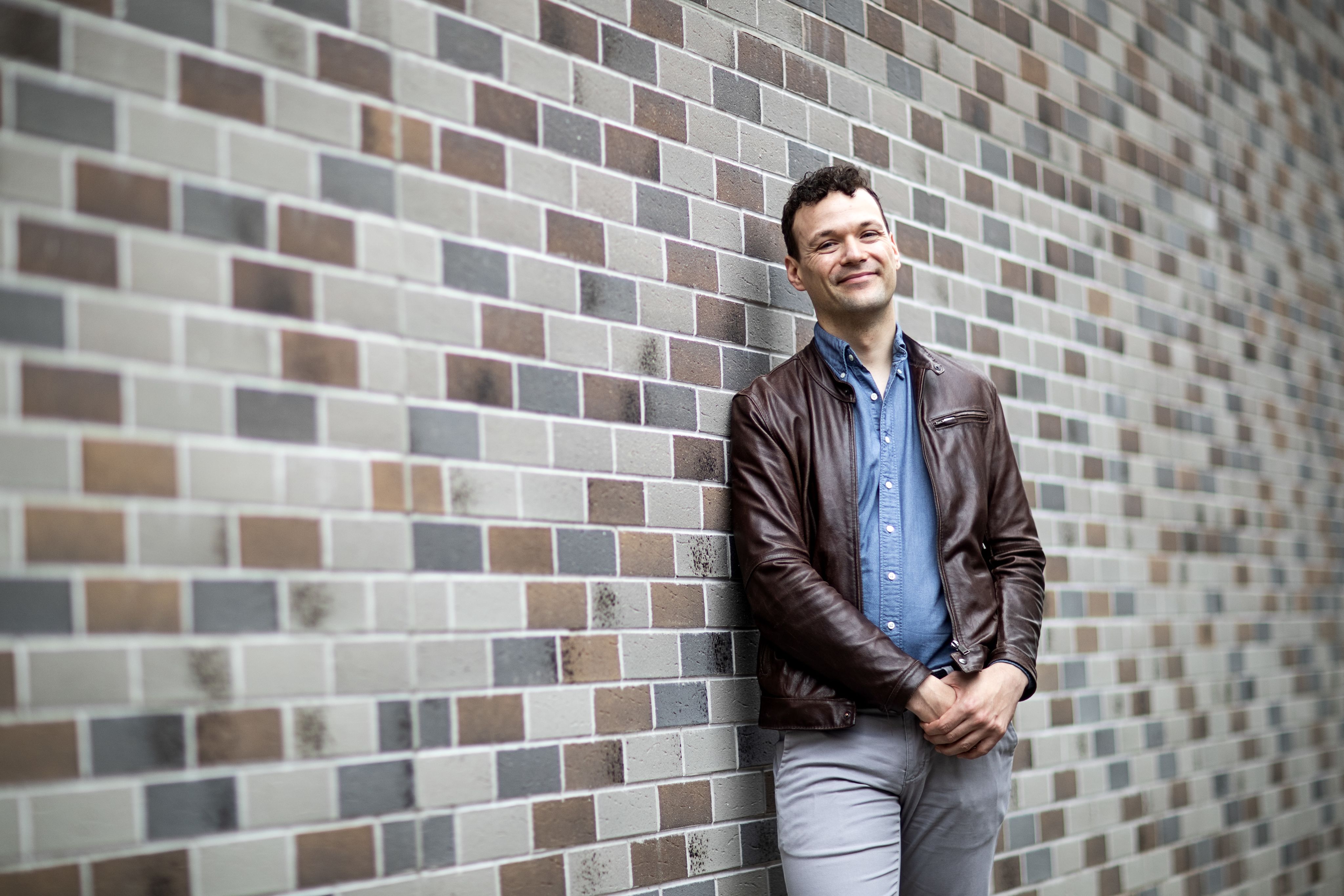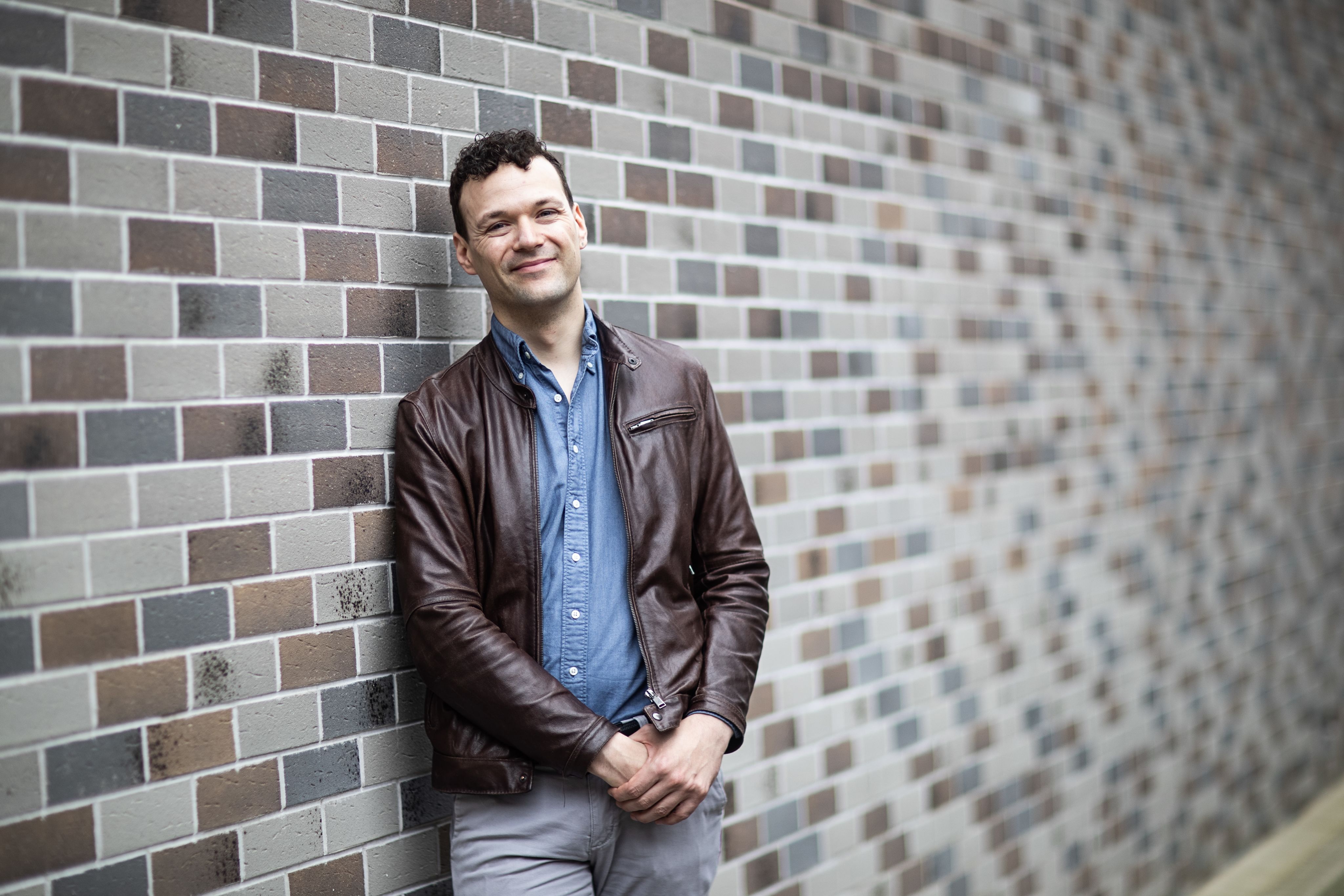Profile: James Barber
"We need to keep shouting about equality"

Profile: James Barber
"We need to keep shouting about equality"

Meet James Barber, the therapeutic radiographer and SABR specialist leading the SoR’s LGBTQI+ Equalise Workers Group
James Barber had always considered himself a “technical radiographer” until a family member went through cancer treatment a few years ago.
“It’s definitely made me a lot better at that side of my job. Of course, you always try to give the best patient care possible, but I think until you really live through it yourself or with someone close to you, it’s a lot harder to offer that care as fully as it can be done.”
James qualified as a therapeutic radiographer in 2011 after three years at Sheffield Hallam University, and took his first job as a Band 5 maternity cover at the Royal Derby Hospital where he had enjoyed his student placements.
“Derby was an amazing place to be a student. The staff were always so engaged and supportive of their students, and now more than a decade later when I am working with students I look back and take inspiration from them.
“Being a smaller centre I got to work on everything in the department, which is really unusual for a newly qualified Band 5 radiographer, and it helped me decide later what I wanted to do.”
James then moved to Cheltenham, in Gloucestershire, initially to work on the treatment units but there was also a vacancy in pre-treatment: “Because I had some experience, I moved across to pre-treatment. My contract was initially for six months but I ended up staying four and a half years. There were some incredible staff in Cheltenham and I learned a huge amount about scanning patients”.
James particularly enjoyed the problem-solving side of pre-treatment: “Because it’s their first radiotherapy appointment, literally anyone can walk through the door. For most patients there’s a standard approach but you have to adapt it to the individual.
“Pre-treatment is usually just one appointment, and often quite soon after they have received their diagnosis, so it can be a very difficult time for them, but you need to put them at their ease really quickly because they are always going to be at their most nervous when they are in that new environment, and they need to be relaxed to allow you to do your job to the best possible standard. You are also kind of setting the tone for their whole radiotherapy journey afterwards.”
His next role took him to London as a Band 7 pre-treatment radiographer at Guy’s & St Thomas’, and his first proper introduction to Stereotactic Ablative Body Radiotherapy (SABR), a modern technique which delivers a very high dose of radiation in fewer sessions, allowing the tumour to be targeted more accurately and meaning patients can experience fewer side effects than with standard radiotherapy and can be offered a treatment option when previously none may have been available.
James then became a research and development radiographer, allowing him to spend two thirds of his time on radiotherapy clinical trials and the remaining time working on his own development projects within the department. “It was a really good opportunity to learn about the future of radiotherapy, looking five to ten years ahead from where we are now.
“What I really enjoyed was developing techniques in my own department. There would be regular tumour group technique meetings which were multi-disciplinary, and you would pick out the things that were not working as well or where there was a gap in what you were delivering, and then you could look internally at what you could do to improve and take that forward. I was then lucky enough to be able to present some of this work both nationally and internationally.
“And you can take development into any role. Development is for everyone, it’s not just for people with ‘development’ in their job title, and it doesn’t have to be technical, it can be patient centred.”
“It’s an amazing place to work and it's delivering some really cutting-edge treatments.”
His first superintendent role followed, on a one-year maternity cover managing the computer systems and cancer informatics and gaining valuable knowledge of how the department worked behind the scenes. When his previous manager Clare Hartill moved from R&D to become radiotherapy services manager at the Royal Free Hospital in north London, James took the opportunity to join her as pre-treatment superintendent in August 2020.
“Clare is one of the best radiographers I have ever worked with, so it was a great opportunity to work with her in that role - it is a smaller department but often that’s a place where you can make a bigger difference. It’s an amazing place to work and it is delivering some really cutting-edge treatments.”
Since then, James’ experience of SABR has seen him appointed to the UK SABR Consortium technical advisory group updating and expanding the guidance behind the national roll-out of the technique, and leading the section on positioning and immobilisation.
He is also chairing a new special interest group on pre-treatment issues which is planning its first meeting this year: “Pre-treatment is a tiny part of a small profession and there is so much to do that we need to share and work together. And the roll-out of SABR will require us to develop a lot of techniques that we will not have used before”.
Taking on a more managerial role as a superintendent has led James to think more widely about the experiences of patients and staff, which ultimately led to him taking the helm on the SoR’s LGBTQI+ Equalise Workers Group.
“We need members to be engaged from a much broader background to flag the issues.”
“I have been lucky in my career and have never really faced any discrimination, but not everyone is in the same position. I became more aware of the issues in my current role where I am more involved in the whole pathway of patient care, for example patient information and feedback, managing staff and thinking more about individuals experiences.”
The SoR is jointly organising a London Pride float with the Royal Free London in July, and James sees his main role initially as building the membership of the group and allowing the membership to set the groups aims and objectives. It’s very informal, with the goals determined by members but with no pressure to attend every month, but with opportunities for those who wish to be more involved to do so.
The group can assist colleagues facing discrimination at work, ensure representation and equality are considered in SoR policy and they are also advising organisations such as The Royal College of Radiologists on creating more inclusive patient consent forms. “It’s not just about getting the broader LGBTQI+ perspective across,” says James, “but having someone who understands the subject matter because they are a professional in the field.
“That’s part of the reason we need to get that broader engagement of the staff group, because I can give my perspective as a gay man and the issues that I can see as being relevant, but because I don’t have that lived experience of people from other strands of the LGBTQI+ community, you need members to be engaged from a much broader background to flag the issues.
“If you don’t live it, you don’t always see it - at least until it’s pointed out to you. And we need to keep shouting about equality until things are where they need to be.”
Find out more
Equalise is the equality and diversity network of the Society and College of Radiographers. To find out more and apply for membership visit www.sor.org/equalise.
To find out more about the Radiotherapy Pre-Treatment Special Interest Group, email James at james.barber6@nhs.net.
Image credit Alastair Staley




